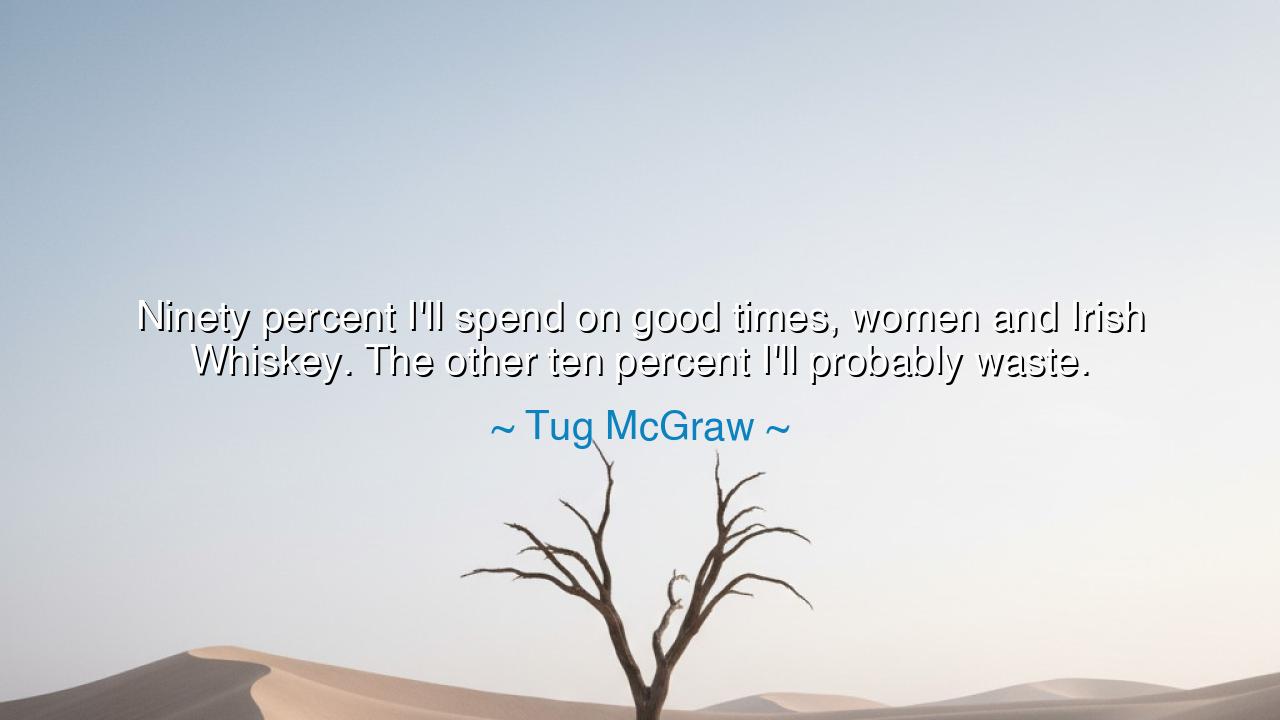
Ninety percent I'll spend on good times, women and Irish
Ninety percent I'll spend on good times, women and Irish Whiskey. The other ten percent I'll probably waste.






The words of Tug McGraw — “Ninety percent I’ll spend on good times, women and Irish Whiskey. The other ten percent I’ll probably waste.” — ring with the laughter of one who has faced the seriousness of life and chosen instead to embrace joy. It is a jest, but one with ancient wisdom buried in its heart: that wealth is not treasure when hoarded, but when poured out in celebration, love, and fellowship.
To speak of good times is to remind us that life is fleeting, and the days of our youth and strength pass quickly. Tug McGraw, a man of sport and triumph, knew that victories fade, fortunes come and go, but memories of laughter and companionship endure. To give one’s wealth to such joys is not to squander it, but to invest it in the eternal currency of the soul. For gold locked in a vault grows cold, but gold spent on love and mirth warms generations.
The mention of women and Irish Whiskey calls to the ancient traditions of revelry and affection. In every age, men have gathered with friends, with lovers, and with drink to celebrate the sweetness of existence. The Vikings raised their mead in halls of fire, the Greeks poured their wine to Dionysus, and the Irish themselves, through centuries of hardship, found courage in fellowship and whiskey. McGraw’s words stand in this tradition: that even in hardship, joy must be claimed defiantly, as an act of strength.
Yet the deepest humor lies in the last phrase: “The other ten percent I’ll probably waste.” For here McGraw flips the world’s wisdom upside down. What others call waste — spending on pleasure — he calls life. What others call prudence — hoarding, fretting, saving for tomorrow that may never come — he calls the true waste. In this paradox we glimpse ancient truth: that the value of wealth lies not in keeping, but in living.
Let the generations remember: wealth is dust when clutched too tightly, but becomes light when shared in good times, in love, in joy, in laughter. Tug McGraw’s words are not merely humor, but a heroic defiance against the tyranny of fear and scarcity. He teaches that even the strong and the famous must one day face the end — so better to live richly, to embrace the fleeting gifts of this world, and to waste nothing by wasting one’s life in worry.






AAdministratorAdministrator
Welcome, honored guests. Please leave a comment, we will respond soon